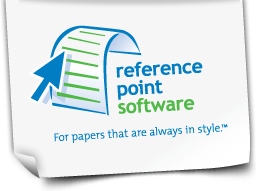Receive Top Marks on Your Nursing Papers by Avoiding These 4 Common Writing Mistakes
Being a nursing student comes with responsibilities that students in other disciplines simply donΓÇÖt have. You have to work long hours while making time to fit in studying along with clinical work. You may have family responsibilities to juggle, too. With all of these demands, itΓÇÖs likely you may feel stressed and tired often. This can make writing nursing papers, another factor in your student life, very challenging.
Your papers must contain the same precision that is expected of your clinical work. You are expected to show evidence of thorough reading and the accurate recording of the facts and ideas and you need to include your own viewpoint in a concise manner. However, little sleep and high stress can cloud your ability to always do your best writing. Here are some mistakes that nursing students make when writing papers that you need to avoid if you want to earn top marks.
1. Wordiness and Repetition
Wordiness and repetition are by far the biggest mistakes students make with their papers. ItΓÇÖs not the quantity of the words you write that matters, but whether what you write has meaningful content. Some typical examples of wordiness and how they can be improved are:
Due to the fact that – because
At that point in time – then
In the process of – during, while
Regardless of the fact that ΓÇô although
In the event that – if
A good way to check for wordiness and redundancy is to read your work aloud and think about how it sounds. Are you using too many words to say what you mean or including different words to say the same thing more than once? You need to master the ability to be brief but comprehensive, saying what you need to say clearly in as few words as possible.
2. Vague and Imprecise Language
A nurseΓÇÖs writing has to be clear and precise, both to facilitate quality care and to inform physicians, other nurses and the recipients of your care. As a student nurse, you will be required to demonstrate that ability by clearly writing your observations and leading readers convincingly to your conclusion. There is no room for vague, imprecise language. Your paper must contain precise nouns and verbs and any vocabulary specific to the field of nursing that youΓÇÖre studying.
3. Clichés
Clichés have no place in any academic paper. That goes doubly in nursing papers! If you find yourself tempted to use expressions such as “time will tell”, “the writing is on the wall”, or “up in the air”, they will cost you points on your papers. While some phrases may seem clever to you, that won’t have the same impact on your readers. Clichés are often overused, and can have hidden meanings, as well as possibly being untrue. They will diminish the quality of your paper.
4. Excessive Digression
DonΓÇÖt let your writing wander off the point. While there are some deviations that serve a legitimate purpose in your paper, like an anecdote to further engage your reader, they still need to tie back in to your primary point. Read your work carefully and be ruthless in editing out anything that isnΓÇÖt relevant.
Ultimately, your nursing papers must be focused and fact based. In addition to concise writing, you will include references from other authors and data sources for credibility. You need to cite your references accurately using the correct formatting style. Nursing papers are usually written using the APA style. You can learn how to use the APA formatting style and hope you donΓÇÖt make mistakes. However, with all of the pressures and demands on your time that come with being a nursing student, you may prefer to use formatting software. With a click of a button you can save yourself time and be sure that your formatting complies with the latest APA standards.
David Plaut is the founder of Reference Point Software (RPS). RPS offers a complete suite of easy-to-use formatting template products featuring MLA and APA style templates, freeing up time to focus on substance while ensuring formatting accuracy. For more information, log onto http://www.referencepointsoftware.com/ or write to:
info @ referencepointsoftware.com
Reference Point Software is not associated with, endorsed by, or affiliated with the American Psychological Association (APA) or with the Modern Language Association (MLA).
